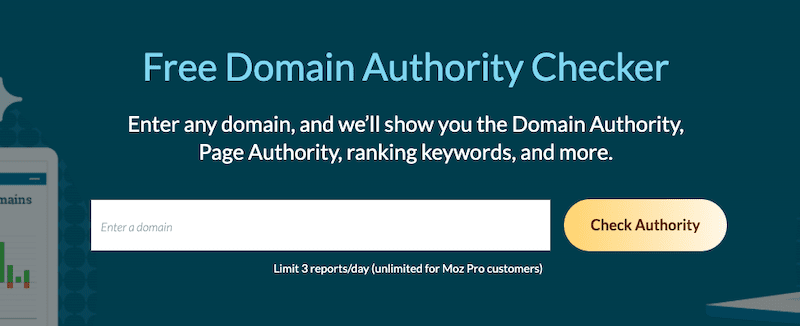What is a guest post? In this article, we explain the purpose of guest posting and how it can help with your brand reputation. We also offer strategies for guest blogging if you want to add it to your marketing efforts.
Guest posting, also referred to as guest blogging, is when an individual writes and posts an article on another person’s or brand’s website.
Typically, there are two main goals of a guest post:
- Guest blogging will reach the website’s audience, which should be the same as or have crossover with the writer’s audience
- Guest posts include at least one backlink to your website, which can improve your SEO through increased traffic
Most of the time, you will not be paid to publish guest posts. That’s usually fine with the writer, as the purpose of guest blogging is not to earn income but instead to market themselves or their brand in their niche.
To speak with an expert about branding, guest blogging and SEO for your business, call us today at 844-461-3632 or fill out the contact form below.
Request a Free Consultation
Online Reputation and Guest Posting
Guest posting can help with your online reputation management (ORM) strategy in a few ways:
- Reach a wider audience
- Establish your authority
- Improve your website’s organic rankings through backlinking
- Generate more qualified leads
- Gain followers on social media
Guest blogging allows you to create owned media while connecting with a bigger or different audience than you usually do.
Owned media is content that you control. Other examples of owned media beyond guest blogs include:
- Your own blog or website
- Your brand’s social media channels
- Emails or newsletters you send
- Other content or ads you create
While you don’t own the blog or website that you’ll be guest posting on, you will have all or a majority of control over the content in the post. This gives you the benefit of owning the media on a platform that you don’t usually have control over.
For a free consultation about your guest blogging strategy and other content services, speak with an online reputation management specialist by calling 844-461-3632 today.
Are Guests Posts Also Advertisements?
Yes, in essence, a guest post is a form of advertising, especially if the site requires payment to post a guest article.
Ideally, you’ll find a great site that meets your needs and doesn’t ask for payment to provide a guest post. However, if guest blogging on the site has a lot of perks for your business but the only option is to pay, then you’ll want to follow Google’s guidelines to ensure you reap the benefits of your efforts.
In the event that you’re able to add a backlink (or a few) to a paid guest post, you’ll need to add a rel=nofollow or rel=sponsored attribute to them to avoid breaching Google’s spam policy.
(There are a lot of guides online that walk you through the process of adding “nofollow” links to guest posts, like this one from WP Beginner.)
Google allows for advertising that promotes your website, including in guest blog posts, but you have to block the links from impacting search results, and the links need to be somehow labeled as advertisements.
Even if you’re not paying for a guest post, it’s smart to limit how many backlinks you include in your guest post. It’s common for website owners to limit how many you’re allowed to include, but a good rule of thumb is to stick to just 1 or 2 per guest post.
If your backlink is well-placed — like in a compelling CTA at the end of your article — it should still get you the guest blogging results you’re after.
How To Choose a Website for a Guest Post
When deciding which websites to pitch a guest post to, you’ll want to select ones that meet the following criteria:
- Relevant to your audience
- Have a high domain authority
- Allow at least one backlink
Of course, you also need to choose a website that accepts guest posts.
Some sites will have a link in the footer that says something like “Write for Us,” which could bring you to a page with info about guest posting or submissions. Alternatively, you can reach out to the website owner with a cold pitch to suggest a guest post.
What Is Domain Authority and Is It Important for My Guest Blogging Strategy?
According to Moz, which coined the term, “Domain Authority is a search engine ranking score…that predicts how likely a website is to rank in search engine result pages.” The score goes from 1 to 100, and the higher the score, the more DA the site has and the higher the chance of ranking well. This is why DA is important to understand when writing guest posts.
Moz has a free DA checker that lets you run 3 reports a day. By entering a domain name and running the check, you can see data like the site’s DA score, how many keywords it’s ranking for, its spam score, the top domains linking back to the website, and more. This will help you select the sites you want to consider for your guest blogging strategy.
Since you don’t want your guest posting efforts to go to waste, it makes sense to only post on sites with high DA scores if you’re able to. This gives you the best chance of generating traffic from high-performing sites.
To speak with an expert about branding, guest blogging, public relations and SEO for your business, call us today at 844-461-3632.
Request a Free Consultation
The Guest Posting Strategy: What Guest Bloggers Should Expect
It’s important that you or someone on your team has quality writing skills since websites won’t accept or publish your guest post if it doesn’t meet their standards.
Assuming you have someone qualified to craft your guest post, here’s how the guest blogging process usually works.
Decide on Your Main Goal for Guest Blogging
Every guest post has the chance to reach that website’s audience. However, knowing more about what you hope to get out of it will help you write and organize the content in a way that will serve you.
Here are a few examples of goals you might have for your guest post:
- Drive traffic to a landing page that promotes a product, service or limited-time offering
- Attract inbound traffic to your website or a pillar blog post on your site
- Increase awareness for your brand, products or services
- Gain email subscribers or social media followers
By figuring out the top goal of your guest post, you can make smart decisions about what and what not to include.
For example, if you’re writing guest posts to promote a new product, the subject should revolve around or relate back to that topic. There isn’t a need to push your newsletter or Instagram account in this case.
However, let’s say your goal is to gain email subscribers. In that case, you could write a guest post that’s similar to the exclusive content you offer in your newsletter and then end with a CTA to sign up.
Vet Sites for Your Guest Post
Next, you’ll want to find sites that are a good match for your business. Here’s an easy way to do this:
- Search for your niche in Google.
- Look into the top results to see which sites have active blogs.
- Run the sites through a DA checker to ensure they have a high enough score.
- Check if the site has a “Write for Us” or other type of submission page.
Even if the site doesn’t specifically state that they accept guest posts, you can still reach out to the owner with your idea.
However, if the site explicitly states that guest posts aren’t accepted, it’s best to skip it instead of wasting your time.
Also, keep track of the guest blogging sites you vet. This will save you the trouble of re-researching sites you’ve already looked into for guest blogs. Maintain a running spreadsheet with site info, the idea you pitched, the result, etc.
Choose a Topic
Choosing a topic for your guest post isn’t as simple as thinking about what you want to write about and then pitching it.
Here’s what to consider when selecting your guest post ideas:
- What topics are most important to your target audience right now?
- Is your topic evergreen enough to not become outdated or inconsequential in the next year?
- Does the website cover topics like the one you have in mind?
- Has the website published an article about your topic already?
- Can you frame the topic in a compelling way so people want to read the article?
In terms of guest post ideas, not only do you have to consider what you (a) want to write about and (b) can write about with authority, but also what your audience and the website owner will find intriguing.
Content ideation and framing can be an especially long part of the guest blogging process. You can either find a site first and then come up with a pitch to match it or develop 1 to 3 pitches ahead of time and look for guest blogs that are a good fit.
Familiarize Yourself With the Website
Even though your guest post will be published under your name, you’ll have to write it in a way that’s on-brand for the publishing website.
Most sites that accept guest posts will have guidelines for guest bloggers to follow. Some sites will be more strict than others, and you’ll have to decide if it’s worth it to you to adhere to a long list of rules for the sake of having a post published.
If you decide to pitch to a site, make sure to thoroughly read the guidelines so you can follow them perfectly. Some site owners won’t bother publishing your post if you don’t follow their rules, and you could waste your time writing an article that doesn’t end up going live.
Also, read several of their recent blog posts to get a feel for the writing style. You’ll want the tone, pacing and layout of your guest posts to fit in with the website because that’s what its audience is used to. By veering too far from the norm, you could turn off readers.
Pro Tip: While you’re going through the guest blogging processes of idea development and familiarizing yourself with the website, consider interacting with the brand and team on social media. Establishing a relationship with the site early can make it easier for guest bloggers to have their pitches accepted.
Submit Your Pitch
If the website has specific guest blogging guidelines or a form to fill out with your pitch, follow the directions. Otherwise, craft your pitch to include the following:
- Brief intro that mentions who you are and that you’re a fan of the site (1-2 sentences)
- Compelling title for your article, preferably one with a target keyword and a hook to grab readers
- Short description of what the article will be about (3-5 sentences)
- Explanation of why the topic is relevant to the site’s audience (1-2 sentences)
- Links to 1-3 past articles that demonstrate your writing ability, especially if it’s similar to the site’s style
- End with a “thank you” and your contact information
Keep your guest blogging pitch short, clear and to the point. Also, don’t copy and paste a generic pitch you find online for guest posts — yours should be written naturally and be personalized for the site.
Create the Guest Post
If your guest post is accepted, the first thing to do is get clear on the timeline. Find out when the site owner wants the guest post submitted. If there’s no firm due date, set one for yourself that’s within the next 2-4 weeks. Beyond that, the site owner may assume you’re not going to submit your post, and you could lose the chance to be published.
Next, it’s time to write the guest post, making sure to follow the site’s style, best practices and specific guidelines. When you’re done, you’ll submit the post, again following the site’s instructions.
Lastly, you should promote the blog post on your own outlets, like your blog, social media, and newsletter.
Is Guest Posting Worth the Effort?
Whether or not guest posting is a viable marketing strategy is up for debate, depending on who you ask. Weighing the pros and cons of guest blogging can help you decide if this is the right choice for your business at the moment.
Pros of Guest Posting
- Brand Awareness: Blogs that have a high viewership increase brand awareness and visibility for you when you publish on them.
- Authority: Guest posting can showcase your authority and credibility regarding the subject matter.
- Trust: Authority builds trust, which is what consumers need when considering whether or not to choose a brand.
- Traffic: Guest blogging on a high-traffic site can increase traffic to your site, social media profiles, or other content with backlinks.
- Relationship-Building: Guest blogging can lead to engagements with readers as well as an ongoing professional relationship with the blog owner.
Cons of Guest Posting
- Blog Guidelines: Some blog owners have such strict guidelines for guest posts that you won’t be able to write in your brand style or get across the information you intend to.
- Syndication: If the blog you publish on has syndicated content, your article could end up on a third-party site that doesn’t reflect well on your brand, and you won’t have any control over it.
- Google Penalties: If you don’t follow Google’s policies for paid guest posts, or even if you add so many backlinks that it looks spammy, you could lose authority and SEO power instead of gaining it.
- Time and Effort: Possibly the biggest drawback of guest posting is how time-consuming it can be from start to finish.
At NetReputation, we feel that owned media, especially on high-authority, niche websites, is smart for your SEO and brand awareness. Promoting neutral and positive content can make it rank highly when your name or company is Googled, and it can also push down negative results if there are less-than-flattering reviews or coverage online about you.
For that reason, we think guest blogging can be a worthwhile endeavor if you go about it the right way. Also, consider it to be just a part of your overall marketing strategy, not a cornerstone of it.
Speak To an Expert in Online Reputation Management
Content creation and guest posting are just part of the online reputation puzzle. A lot goes into your brand’s reputation and how the public perceives it, including:
- Online reviews and how you respond to them
- Social media profiles and how you engage with your followers
- SEO results, especially negative content
This just scratches the surface of the online content that can impact your reputation.
Call us today at 844-461-3632 to speak with an expert about building and maintaining the brand reputation you deserve.






